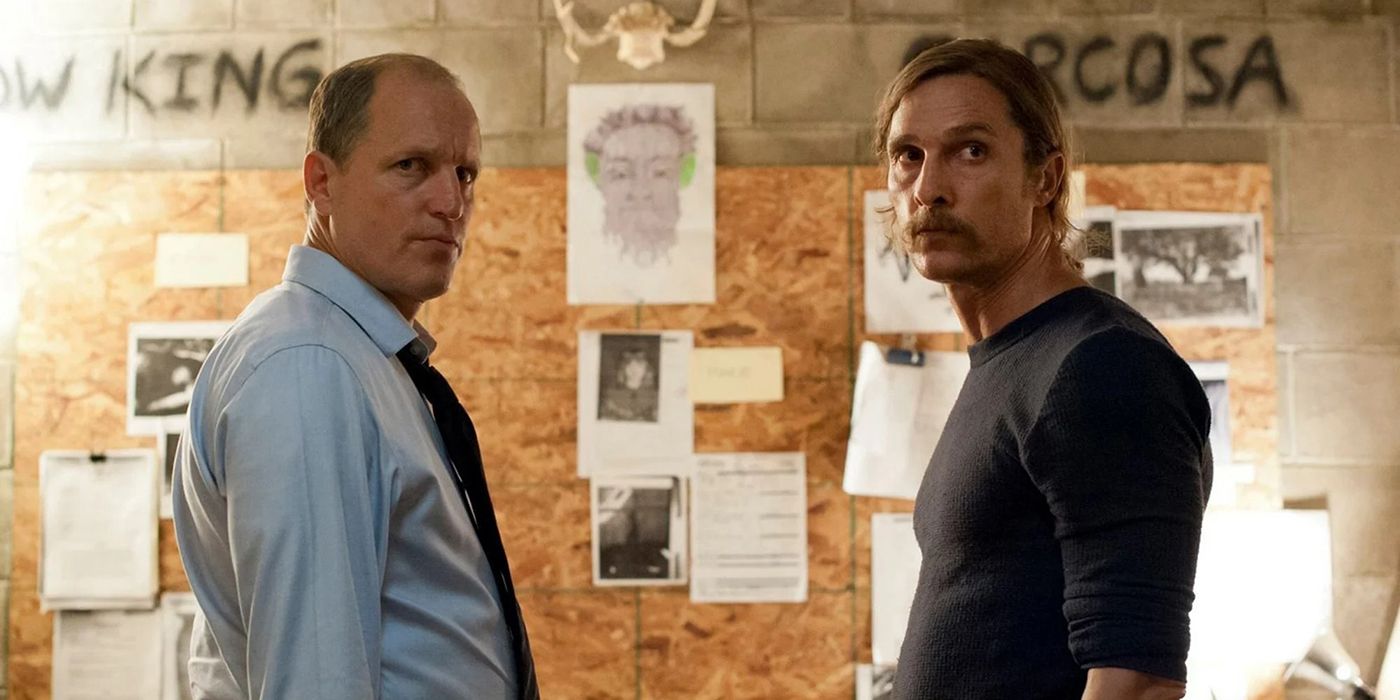The psychological crime genre has long captivated audiences with its intricate blend of suspense, moral ambiguity, and deep dives into the human psyche. American cinema, in particular, has produced some of the most iconic and thought-provoking films in this category, often exploring the darkest corners of the mind while unraveling complex criminal mysteries. From serial killers to morally conflicted detectives, these films challenge viewers to question the nature of good and evil. Below is a curated list of the top 10 best American psychological crime movies of all time, including the critically acclaimed True Detective.
1. The Silence of the Lambs (1991)
Directed by Jonathan Demme, The Silence of the Lambs is a cornerstone of the psychological crime genre. The film follows Clarice Starling (Jodie Foster), a young FBI trainee tasked with catching a serial killer known as Buffalo Bill. To do so, she must seek the help of the brilliant yet terrifying Dr. Hannibal Lecter (Anthony Hopkins), a cannibalistic psychiatrist imprisoned for his own heinous crimes. The tension between Clarice and Lecter is palpable, as his psychological manipulation forces her to confront her own fears and vulnerabilities. Hopkins’ chilling performance earned him an Academy Award, and the film itself won Best Picture, cementing its place as a masterpiece that explores the thin line between sanity and madness.
2. Se7en (1995)
David Fincher’s Se7en is a haunting exploration of sin and punishment. The film stars Brad Pitt and Morgan Freeman as two detectives, David Mills and William Somerset, who are on the hunt for a serial killer using the seven deadly sins as his modus operandi. Each murder is a gruesome tableau, reflecting the killer’s twisted moral philosophy. Fincher’s meticulous direction creates an oppressive atmosphere, drawing viewers into a world where evil seems to permeate every corner. The film’s shocking climax, often referenced in popular culture, forces both the characters and the audience to grapple with the nature of justice and retribution. Se7en remains a benchmark for psychological crime films due to its unrelenting intensity and profound moral questions.
3. Zodiac (2007)
Another masterpiece from David Fincher, Zodiac chronicles the real-life hunt for the Zodiac Killer, a serial murderer who terrorized Northern California in the late 1960s and early 1970s. The film follows cartoonist Robert Graysmith (Jake Gyllenhaal), journalist Paul Avery (Robert Downey Jr.), and detective Dave Toschi (Mark Ruffalo) as they become consumed by the case. Unlike many crime films, Zodiac doesn’t offer a neat resolution, mirroring the real-life investigation’s frustrating lack of closure. Fincher’s slow-burn approach heightens the psychological toll on the characters, making the film as much about obsession and the cost of seeking truth as it is about the crimes themselves.
4. True Detective (2014) – Season 1
While True Detective is technically a television series, its first season, directed by Cary Joji Fukunaga and written by Nic Pizzolatto, is often regarded as a cinematic achievement worthy of inclusion on this list. The anthology series’ debut season follows two Louisiana detectives, Rust Cohle (Matthew McConaughey) and Marty Hart (Woody Harrelson), as they investigate a series of occult-related murders over a 17-year span. The narrative alternates between 1995, when the case begins, and 2012, when the detectives are forced to revisit their past. True Detective stands out for its philosophical depth, with Cohle’s nihilistic worldview clashing against Hart’s more grounded perspective. The show’s eerie atmosphere, combined with McConaughey’s and Harrelson’s powerhouse performances, creates a gripping exploration of trauma, guilt, and the darkness within. The six-minute tracking shot in episode four is a technical marvel, showcasing the series’ cinematic quality.

5. Prisoners (2013)
Directed by Denis Villeneuve, Prisoners is a harrowing tale of desperation and morality. When two young girls go missing, Keller Dover (Hugh Jackman) takes matters into his own hands after the police release their prime suspect, Alex Jones (Paul Dano). Detective Loki (Jake Gyllenhaal) leads the official investigation, but Dover’s vigilante actions blur the line between right and wrong. The film’s tense atmosphere and morally complex characters force viewers to question how far one should go for justice. Jackman delivers a raw, emotional performance as a father driven to extremes, while Gyllenhaal’s understated portrayal of Loki adds depth to the investigation. Prisoners is a gut-wrenching exploration of grief, rage, and the psychological toll of loss.
6. Gone Girl (2014)
David Fincher strikes again with Gone Girl, a chilling adaptation of Gillian Flynn’s novel. The film centers on Nick Dunne (Ben Affleck), whose wife, Amy (Rosamund Pike), mysteriously disappears on their fifth wedding anniversary. As the investigation unfolds, Nick becomes the prime suspect, and the media frenzy exposes the cracks in their seemingly perfect marriage. Through a series of narrative twists, the film reveals Amy’s manipulative nature and her elaborate plan to frame Nick. Pike’s performance as the calculating Amy earned her an Oscar nomination, and Fincher’s direction keeps viewers on edge as the layers of deception unravel. Gone Girl is a dark examination of love, betrayal, and the masks people wear in relationships.
7. Mystic River (2003)
Directed by Clint Eastwood, Mystic River is a haunting drama about the long-lasting effects of trauma. The film follows three childhood friends—Jimmy Markum (Sean Penn), Sean Devine (Kevin Bacon), and Dave Boyle (Tim Robbins)—whose lives are forever changed when Dave is abducted and abused as a child. Decades later, the murder of Jimmy’s daughter reunites the trio, with Sean, now a detective, investigating the case, and Dave emerging as a suspect. The film delves into the psychological scars left by past traumas and the cycle of violence that ensues. Penn and Robbins both won Oscars for their performances, and Eastwood’s somber direction creates a powerful narrative about guilt, revenge, and redemption.
8. Nightcrawler (2014)
Nightcrawler, directed by Dan Gilroy, offers a disturbing look at the ethics of crime journalism. Jake Gyllenhaal stars as Lou Bloom, a sociopathic loner who stumbles into the world of freelance crime videography. As he films increasingly gruesome scenes to sell to news stations, Lou begins to manipulate events to create more sensational footage, blurring the line between observer and participant. Gyllenhaal’s unsettling performance captures Lou’s lack of empathy and relentless ambition, making him a chilling protagonist. The film critiques the media’s exploitation of violence and the psychological detachment required to profit from others’ suffering, making it a unique entry in the genre.
9. Shutter Island (2010)
Martin Scorsese’s Shutter Island is a mind-bending psychological thriller set in 1954. Leonardo DiCaprio plays U.S. Marshal Teddy Daniels, who travels to a remote psychiatric hospital to investigate the disappearance of a patient. As Teddy and his partner (Mark Ruffalo) delve deeper, the hospital’s sinister secrets unravel, and Teddy’s grip on reality begins to slip. Scorsese masterfully blends noir aesthetics with psychological horror, creating a disorienting atmosphere that mirrors Teddy’s mental state. The film’s shocking twist forces viewers to question the nature of truth and perception, making it a standout in the psychological crime genre.
10. The Departed (2006)
Martin Scorsese’s The Departed is a gritty crime thriller about deception and identity. The film follows two men on opposite sides of the law: Billy Costigan (Leonardo DiCaprio), an undercover cop infiltrating a Boston mob, and Colin Sullivan (Matt Damon), a mob mole within the police force. As both men work to uncover the other’s identity, the psychological strain of living double lives takes its toll. Jack Nicholson delivers a menacing performance as the mob boss Frank Costello, adding to the film’s tension. The Departed won Best Picture at the Oscars, and its fast-paced editing and intricate plotting make it a thrilling exploration of loyalty, betrayal, and the cost of deception.
Conclusion
The American psychological crime genre has produced some of cinema’s most unforgettable films, blending suspense with deep psychological insight. From the philosophical depths of True Detective to the twisted manipulations of Gone Girl, these movies challenge viewers to confront the darker aspects of human nature. Whether you’re drawn to the cat-and-mouse games of The Silence of the Lambs or the moral ambiguity of Prisoners, this list offers a diverse range of films that continue to captivate and unsettle audiences. Each entry pushes the boundaries of the genre, proving that the most dangerous crimes are often those that originate in the mind.
